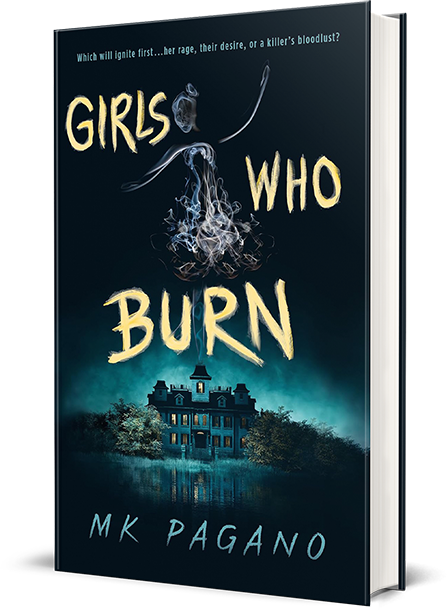MK’s Book Reviews: Me and Earl and the Dying Girl

I read a really great book last week…
I had just finished the epic ending to an epic trilogy, and needed something a little lighter. I got what I wished for … sort of.
Me and Earl and the Dying Girl by Jesse Andrews was an easy read: short, relatable, endlessly hilarious–but I’m not sure I’d call it light.
First, the synopsis from Goodreads.
Greg Gaines is the last master of high school espionage, able to disappear at will into any social environment. He has only one friend, Earl, and together they spend their time making movies, their own incomprehensible versions of Coppola and Herzog cult classics.
Until Greg’s mother forces him to rekindle his childhood friendship with Rachel.
Rachel has been diagnosed with leukemia—-cue extreme adolescent awkwardness—-but a parental mandate has been issued and must be obeyed. When Rachel stops treatment, Greg and Earl decide the thing to do is to make a film for her, which turns into the Worst Film Ever Made and becomes a turning point in each of their lives.
And all at once Greg must abandon invisibility and stand in the spotlight.
So I wasn’t necessarily in the market for a “cancer book” and in general don’t seek them out (though I do love The Fault in Our Stars, which this has been compared to.) But the voice of this book sucked me in from the start:
So in order to understand everything that happened, you have to start from the premise that high school sucks. Do you accept that premise? Of course you do. It is a universally acknowledged truth that high school sucks. In fact, high school is where we are first introduced to the basic existential question of life: How is it possible to exist in a place that sucks so bad?
I accept this premise, and was therefore sucked in.
The good:
1. THE VOICE It’s not for everyone, and most of the negative reviews I’ve seen had to do with the “annoying” narrator, but I loved Greg’s voice. As I’ve said before I think I will always be an immature teenager at heart.
I’m not really putting this very well. My point is this: This book contains precisely zero Important Life Lessons, or Little-Known Facts About Love, or sappy tear-jerking Moments When We Knew We Had Left Our Childhood Behind for Good, or whatever. And, unlike most books in which a girl gets cancer, there are definitely no sugary paradoxical single-sentence-paragraphs that you’re supposed to think are deep because they’re in italics. Do you know what I’m talking about? I’m talking about sentences like this:
The cancer had taken her eyeballs, yet she saw the world with more clarity than ever before.
Barf. Forget it. For me personally, things are in no way more meaningful because I got to know Rachel before she died. If anything, things are less meaningful. All right?
2. The characters All of them. Greg was sympathetic, his family was real and hilarious, Earl was incredibly entertaining, and while Rachel herself was definitely not a barrel of laughs, she felt real. They all did.
3. It was SO FUNNY I direct you simply to this tweet, which the author himself actually retweeted.
4. IT WAS SO REAL If you’re looking for a love story, this isn’t it. It was simply an incredibly realistic portrayal of what could actually happen in high school.
So. If this was some normal fictional young-adult book, this is the part of the story where after the film, the entire high school would rise to their feet and applaud, and Earl and I would find True Acceptance and begin to Truly Believe in Ourselves and Rachel would somehow miraculously make a recovery, or maybe she would die but we would Always Have Her to Thank for Making Us Discover Our Inner Talent, and Madison would become my girlfriend and I would get to nuzzle her boobs like an affectionate panda cub whenever I wanted.
That is why fiction sucks. None of that happened. Instead, pretty much everything happened that I was afraid of, except worse.
The less good (there’s not much):
1. It was a little anticlimactic It just kind of ended. And I know that was the point and all, but I guess I wanted a little more of a resolution. (The movie gives you a more typical resolution. More on that later.)
2. It got a little too voice-y at times I think it was the overuse of the word “barf” that bugged me the most.
3. It was too short I wanted more about Greg’s sisters and his dad and Earl and his brothers and everything else. I wanted to stay in this world a little longer.
A departure from my regular book review format:
After reading the book, I went on to watch the movie. It had apparently won a bunch of awards and the screenplay was written by the author himself, and so I figured it must be pretty good. It was. The actors were well-cast, for the most part–I especially loved Earl. The cinematography was fantastic, especially the way they showed Greg and Earl’s movies. The script was perfect.
My only gripe–the same gripe I have with the Harry Potter movies–is that they cast this beautiful actress in the role of Rachel, where in the book it’s explicitly stated that she’s unattractive. (They did the same with Hermione.) Look, it’s rare to read about unattractive female main characters in fiction. But it’s even rarer to see them on screen. Awkward little girls need to see something other than beautiful girls in the media because it helps them feel less shitty about themselves during the supremely shitty time of life that is adolescence. Also girls should be valued for more than their looks. I discuss this at length in this post, so I’ll end my rant here.
But overall, I loved the book, and very much liked the movie, and you should go read this book and see this move, and then please come back here so we can discuss.
Image taken from the movie in which you can see how beautiful the actress who plays Rachel is


At the risk of sounding like a cyber stalker (sorry) I really enjoy your blog and I come looking for a post daily. Something about the voice you write in, very relatable and friendly.
Onto the book review. I have this book lying around and haven’t gotten to it yet. I bought it because of the beginning – also sucked me in. But I didn’t want to cry – I didn’t want another cancer book as you said. Now maybe the right time to give it a go… sounds funny enough not to leave me in tears for a month.
About casting unattractive girls – here’s my thing; I wholeheartedly 1000% believe there is no such thing as unattractive. There is always always always something downright beautiful about everyone. It may be cosmetic eyes/nose/body or something less visible personality/soul – but we are are made beautiful. So I don’t get how they’d cast someone unattractive. Also, when we admittedly choose and actress who considers herself unattractive isn’t that kind of a catch 22 for the girls that we’re trying to make this character relatable to? I think the focus should be on making everything feel attractive – not helping them accept that they aren’t attractive? I’m sure I’m far from being eloquent in trying to prove my point … but hopefully.
I have no problems with having cyber stalkers, so thank you for your words! And this book really didn’t make me sob–the funny definitely balanced it out.
I 100% agree with you that maybe “unattractive” wasn’t the best word to use because all women are beautiful in their own way. Maybe I should have used the words “not traditionally attractive”? I have a friend who works in Hollywood who’s lamented more than once how frustrating it is for her to constantly maintain a perfect body, and how many of her friends have had to undergo cosmetic procedures just to be able to get work. Women are just held to a more unrealistic beauty standard than men are. I also used to work in the beauty industry, where the models we’d use to sell our products were ridiculously perfect-looking. As the social media manager I’d see comments on our model photos from girls saying things like “Oh my God, she’s so pretty, I’ll never be that pretty, I hate myself.” And that made me feel really crappy. (One of the reasons I left that industry.) When young girls are constantly being bombarded by traditionally pretty faces (high cheekbones, full lips, small, straight noses) and thin bodies, they’ll look at themselves and think “something’s wrong with me.” (Not all girls, but enough; I certainly did when I was young.)
I explain it more in my Lena Dunham post that I link to here, but I think it’s important, especially in YA, for young girls to see other girls they can relate to, not just unattainably beautiful ones. Which is why I think we need young women with acne and big noses and frizzy hair and undefined cheekbones up on the big screen, as well as the little one, as well as in books. I’m working on a book with such a heroine, and I do understand why it’s not done more–it’s hard! The beautiful princess trope is something that’s been ingrained in me since Disney movies of my childhood, and it’s hard to shake off.
This article maybe does a better job of explaining it than I do: https://www.buzzfeed.com/erikajohansen/all-shapes-and-sizes?utm_term=.gbbA0Pd1j#.xyaOKqAg7. But thanks again for your comment and let me know if all of this makes sense!
I think you hit it on the nose when you said “unattainably beautiful ones”
Absolutely agree and see that so much. Does mountains of damage to a girl’s ego.
Oh and BTW – what epic trilogy did you just finish?
The Passage trilogy! Post apocalyptic vampire virus novels. Kind of crazy and really long, and the last two were not as good as the first one, but definitely worth the read. I need to review them all but need to wait for a week when I have more time, there’s soooo much to discuss haha
my co worker just read them – they were raving about them as well! I do miss my vampire dosage. (Edward cullen had me at hello)
Word to the wise, The Passage vampires are NOTHING like the Twilight vampires! These ones don’t have speech, and are vastly physically altered when they change so I picture them sort of like giant cockroaches. Not sexy at all, haha
is this the Passage you’re talking about?
The Passage (The Passage #1)
by Justin Cronin (Goodreads Author)
It is!
[…] me Laugh the Hardest Me and Earl and The Dying Girl, for […]